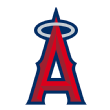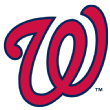"Every character should want something," Kurt Vonnegut advised in "Creative Writing 101," "even if it is only a glass of water."
Major League Baseball, like all professional sports, like all high-level competition, has always had a lot of glasses of water. Fans care because the players care so much for those glasses of water: They want to make the All-Star team, they want to drive in 100 runs, they want to hear the crowd cheer them, they want to grow those crowds with their success, they want to get high-fives in the dugout -- and they want to avoid all the opposites, bad stats on their career record and long summers spent in last place.
Those motivations are all ajumble this year. Nobody will hit 30 home runs, and even a .300 batting average will come with implied asterisks in just 100 or 200 at-bats. Good seasons won't count for as much on one's career page, bad seasons will be easily brushed aside, career highs are off the table, and those hundreds of microrecords and fun facts that populate media guides will not be set -- nobody is going to set the franchise record for doubles by a rookie, for instance. Relievers are going to throw about 18 innings, and single bad outings will lock in career-worst ERAs. Oblique strains or broken thumbs in the third week of the season won't trigger the grueling-but-rewarding rehab process, but simply end a player's season. Even those teams that are playing for next year -- that time-honored tradition of making a bad season productive -- will A) have limited ways to do so, given the inactivity of nearly all of its 200 minor leaguers and B) wonder whether next year is going to feel any realer than this one.
Even the World Series, the ultimate goal, the closest thing to an unambiguous glass of water this season, is ambiguous. Will it feel as good if it is won in a silent stadium alongside teammates you can't hug? Will it matter so much if it might not lead to any bump in attendance next year? Will historians fully credit it? Will anybody take seriously a postseason that the league was making up, on the fly, up to a few hours before the season's first pitch? Will we even get there, or will this perilous path run out before the Series is played?
For the past few years, we've tried to answer a question for every team: What would success look like this year? We've tried to define success broadly, within the context of the franchise's history and trajectory, respecting each club's personal goals and expectations, and appreciating that baseball is a game of many types of successes, rather than just the one. We're going to try to do that again, right now, looking at what this season means for the teams in each tier of competitiveness.
But in one way, the answer is just so bluntly obvious: Success is not getting sick, not getting permanently damaged, not spreading the sickness to teammates, coaches and the broader public, not causing death.
And in the other way, the answer is almost impossible. We can realistically envision a World Series victory for almost every team this year. But even then, it's less "What would mean a team was successful" and more "What would a team's success mean?"
Jump to a tier:
Superteams | Contenders | Even more contenders | Tankers

The superteams
Los Angeles Dodgers, New York Yankees, Houston Astros
To some degree, these teams' goals are the least affected by the short season, and their winning the World Series would be the least subject to scrutiny of legitimacy. These are great teams! Their greatness has been a storyline for years, and the work of justifying their greatness has already been done. (More Vonnegut: "Start as close to the end as possible.") Each superteam has a short window to be historically significant, to make a mark like the Big Red Machine or the Murderers' Row Yankees, instead of being semi-forgotten like the (equally good) late-1920s Philadelphia A's or early-1970s Orioles. A championship here this year would certainly add to their legacies, and in some ways could be even more memorable, since small sample sizes make it harder, not easier, for greatness to win out. And that last bit puts even more pressure on them. The margins are slim, and while they can use a "yeah, but small samples are inherently prone to producing unrepresentative outcomes" excuse, nothing makes a superteam look smaller than an excuse.
Each is in a different state of superteamdom, though.

Dodgers: The Dodgers have reached the weird stage where the better they are without winning a World Series, the more painful it is for many of their fans. If they eventually win a World Series, then all these everything-but-the-ring seasons will be remembered very fondly. If the Dodgers win any of the next, say, five World Series, then the books that baseball authors write in 2100 will describe this current run of Dodgers baseball as one of the greatest -- and most fun -- in history. Just think about what we've seen in the past seven years of Dodgers baseball: Clayton Kershaw's MVP award, Kershaw's no-hitter, Cody Bellinger's rookie HR record, Bellinger's MVP award, Yasiel Puig's Instagram, Vin Scully's pitch-perfect retirement, Kenley Jansen's cutter and multi-inning postseason appearances, Max Muncy's emergence out of nowhere, Hyun-Jin Ryu's ERA title, Zack Greinke's 1.66 ERA, Walker Buehler becoming the best young starter in the game, Rich Hill becoming one of the best old starters in the game, Justin Turner crushing the postseason, seven consecutive 90-win seasons, a franchise-record 106-win season, and now the Mookie Betts trade and extension. They've led the NL in attendance seven years in a row -- after ranking just sixth in 2011 -- and have played 66 postseason games.
If they don't win one of the next five titles, though, they'll be remembered as the best team never to win it all. Only four teams have ever won 90 games in at least seven consecutive seasons, including these Dodgers. The 1947-1958 Yankees did, and they won eight championships. The 1904-1912 Cubs did, and they won two titles and had (in 1906) the best record in baseball history. The 2001-2007 Yankees did, and while they didn't win a World Series in those years, they did win it all in 2000 and 2009, so nobody mistakes that 2001-2007 run for a contained competitive window. And then there's these Dodgers, heretofore The Best Team Never To Win It All. The better they are, the harder that sentence will be to accept. And the better they appear to be in the regular season, the worse the pessimistic-for-October Dodgers fan anticipates the fall.
That makes this year a very strange one for the Dodgers, with a lot of pressure and perhaps slightly less upside than for the other superteams. I said they needed to win a World Series to validate this run of team success. Would winning this World Series, this year, count? Probably. But will it count if the short season produces a bunch of unconvincing playoff teams, and the Dodgers win the World Series by knocking off the Pirates, Rockies, Marlins and Angels in October? Will it "count" if they face the Yankees in the World Series, but eight Yankees are unavailable that week because of a quarantine? It's a silly thing to spend too much time asking whether a World Series will count. And, yes, I think ultimately the World Series is going to be extremely joyful for any team that wins it, with maybe a very few exceptions in a few exceptional circumstances. If they win a fake World Series, and that's all Andrew Friedman ever does in Los Angeles, it is at least plausible that it'll go down as only somewhat better than nothing. The Dodgers' glass of water this year, then, is first getting credible postseason opponents and then beating them.

Yankees: Since George Steinbrenner died, the Yankees have the best record in baseball, and they've also failed to make the World Series. That's 10 years without the AL pennant, closing in on the 14-year gap -- from 1982 to 1995, including the no-pennants-for-anyone 1994 season -- that marks the worst stretch in club history.
They won 103 games last year, which should be enough to raise expectations to World Series or bust. But I think there's a little wiggle room for the Yankees, especially in this weird year. Of the three superteams, the Dodgers seem like a permanent member. The Astros seem like a team that has juuuuuust tipped over into their decline, with the league's oldest lineup, an ace gone to free agency, and other stars soon to hit free agency. The Yankees, meanwhile, still seem to be getting better. That's partly because their best hitters are still fairly young. It's partly because they just added Gerrit Cole, perhaps the league's best pitcher. It's partly because they won 103 games last year while getting obliterated by injuries, suggesting (perhaps unrealistically) that with a little luck they would have been/will be even better than that. And it's, partly, just an illusion created by the fact that they've won progressively more games in each of the past four seasons.
The point is that the Yankees have maintained a position of progress in the past three years. If they win the World Series this year, that would be great -- and if it takes multiple championships to make a dynasty, it's truly never too early to win the first. But if they don't win, but do make, the Series, that would still be superteam progress.

Astros: The pressure is on the Astros to be the best team in baseball and win the World Series. There's no doubt the Astros were good enough to win a World Series in 2017, just as they were good enough to win it in 2018 and 2019. Rerun that entire 2017 season without trash cans and there's a pretty good chance they win the title. But they did use the trash cans, and now nobody respects that title and the Astros are stuck saying missing-the-point things like "the cheating didn't help us." Ballplayers' careers are short, teams' competitive windows shorter still, and they only get so many opportunities to accomplish the thing they want to accomplish, which is to get a lot of recognition for how great they are. The problem with cheating is that you might actually win, and once you're caught you lose the recognition. Cheating isn't a shortcut to success. It actually eliminates one of those precious opportunities.
Winning the World Series this year wouldn't backfill all the credit the Astros desired in 2017, but it would help a little bit. The 2017 Astros were one of the greatest, most talented teams of all time, and they won the World Series. The second half of that sentence will always be tainted. But to some degree, they're still fighting to justify the first half.
The other thing that would constitute success for the Astros this year is somehow getting past all of that. It might have been a blessing for them to go from city to city getting booed, letting everybody express it. The team could have absorbed it, grown more contrite, turned over a bit more of the roster, and -- with another excellent season -- continued the process of proving how talented they are. In lieu of those boos, they have little other option but to try to win the World Series this year. If anybody after that wants to diminish the ring on their left hand, they can hold up the one on the right.

The contenders
Atlanta Braves, Washington Nationals, Tampa Bay Rays, New York Mets, Minnesota Twins, Chicago Cubs, San Diego Padres, Milwaukee Brewers, Cincinnati Reds, Oakland A's, Cleveland Indians -- still going! -- St. Louis Cardinals, Arizona Diamondbacks, Philadelphia Phillies -- gasping for air! -- Boston Red Sox, Los Angeles Angels
All of these teams were projected by FanGraphs to fall within a three-game range -- to be, in theory, within a single three-game sweep on the final weekend of the season of each other. How can that be? Sixty-game season, my friend. What would normally be a 10-win range (from about 80 wins, and selling at the trade deadline, to about 90 wins, and buying at the trade deadline) shrinks to a three-game gap over 60 games. And a three-game gap is nothing, means nothing. A three-game gap is the closer having one bad week -- or, to be really depressing about it, the closer having to quarantine, and his replacement having one bad week.
So this will quite likely not be the year that determines the best team in baseball. Quite likely, the 20th-best team in baseball will finish ahead of the fourth best in the standings, and they'll both end up in a chaotic postseason that resembles March Madness more than typical October ... um, October Officialness.
So what does that do to the stakes for these 16 contenders? For one thing, this season puts a lot less pressure on them. Part of what a team plays for is, of course, to win the World Series. But in a sport like baseball, a lot of what matters is prolonging how long the games matter. They matter when you're down two games in August; they don't matter when you're down 25 games in August. In a normal season, losing leads players and fans to that miserable four-month zombie walk through hot and uncomfortable and meaningless summer games.
This season is going to be short. Nearly every team is going to be "in it" until the final couple weeks of the season, and mathematically in it until the final week. Any of these contending teams could have an awful year, just awful, last place even, and it'll be disappointing as it happens but it won't lead to the zombie walk, because with eight games left they'll most likely be an eight-game winning streak from making the playoffs. And, for that matter, even if it does turn into the zombie walk -- like if they somehow start the year 2-21 -- it won't cost the team any attendance. It might not even cause many fans to turn off the game. What else are we going to watch?
So, to the extent that a successful season is often one that lets fans care until the end, this will almost certainly be an easy target for all of the above teams. Beyond that, the stakes of actually winning vary from team to team. Here's a rough guess of how rewarding a World Series title this year, under these circumstances, would be for each team, from least rewarding to most:

Red Sox: I'm sure ownership would take some spiteful delight in this -- sneering back at the people who sneered at them for trading Mookie Betts -- but nothing would scream "nihilistic fake season!" like the Red Sox, of all teams, winning a title after giving up and trading Betts.

Cardinals: Cardinals history has so many World Series titles to celebrate that they'll probably just toss this one in the back of a drawer. It would be a nice companion for the 1944 title, which came against a league gutted of talent by World War II.

Diamondbacks: The Diamondbacks have spent the past couple of seasons trying to stay just good enough to hang around a pennant race, without having to tear all the way down but without much hope of ever catching the Dodgers. If you'd known that a 60-game season with 16 playoff spots was coming, you almost couldn't have planned it better. The 60-game season with 16 playoff spots is perfect for the team that's just good enough to hang around. In 60 games, they might actually catch the Dodgers!

Braves: It would feel amazing, and they would love it. But the Braves, and many of these contenders, are in an in-between zone when it comes to the 60-game season. The superteams can win it all without anybody disparaging the achievement, since they're unambiguously super. The true underdogs, the Cinderellas, can win it all without anybody disparaging the achievement, since nobody will pretend it's anything other than a hilarious and absurd (and fun!) anomaly. For a team like the Braves, though, winning The Weird Season could feel a little bit like something was taken from them. If the Braves beat the Dodgers in a normal season, the Braves beat the Dodgers. If they beat the Dodgers in the Weird Season -- or if they don't even get the opportunity because they never face the Dodgers in the Weird Playoffs -- then it gets diminished as being a result of the Weird Season. They're too good a team to deserve that ambiguity!

Twins: It would be amazing, and they would love it. Same unease as the Braves, though. And, to just tuck this point in somewhere: If expressions of joy are restricted this year, will it simply diminish the joy? If players play for three months without hearing any cheers, seeing any supportive faces in the crowd, or getting any high-fives from their teammates, what does it do to their own emotional responses? "The environment, so full of life in normal times, is antiseptic," Jeff Passan wrote last week. When it comes to giving our achievements meaning, how dependent on those connections with each other are we? Until October is over, we just have no idea.

Indians: I want to say it would be almost anticlimactic to snap a 71-season drought -- the longest in baseball -- in such an anomalous year. But Cleveland's competitive window has been closing, and I'm not sure there's a better chance ahead of it in the next half-decade.

Padres: The Padres are a young team that is probably a year away from being really good, so winning this World Series -- their first in franchise history -- would be like a little warm-up for the 2021 or 2022 or 2023 World Series they were planning for. It'd be fun, for sure; amazing. They'll jump and celebrate. Hypothetically, say they also win in 2022, when life is normal, the season is fully legitimate, and fans can celebrate in the stands and shoulder-to-shoulder at a World Series parade. You could argue that this year's title would diminish the climactic, cathartic feeling that the 2022 title would have otherwise produced. There's something to that. But in that case, now they would have a little dynasty going. And if they don't win it in 2022 (or any other year), they would have still locked this period in as the Golden Age of San Diego Baseball, which this history-starved franchise really needs.

Brewers: Like Cleveland and the Padres, the Brewers have a long World Series drought -- as in, never ever won it -- and might prefer to win it in a typical season. But the Brewers have made the postseason two years in a row, so they've put the work in to establish their legitimacy. Even a weird World Series would cap off the Golden Age of Milwaukee Baseball.

Phillies: Perhaps more than any other team in this category, the Phillies are on the cusp of outright failure, having gone through the ugly and painful rebuild phase but emerged as merely a .500 team. The shortened season probably buys their front office a bit more time before the reckoning, even if the Phillies were to fail again this year. But if ever there were a season when a mediocre team could ride two hot months and rewrite a whole narrative, this would be it.

Reds: The Reds have finished in fourth place or lower six years in a row, so any success will be huge. And they've made the moves to actually improve themselves, so it won't seem like a fluke. Plus, Joey Votto has probably moved into first place on the Old Player We're Rooting To See Make The World Series One Danged Time Before It's Too Late leaderboard.

Mets: It would be amazing. They'd love it. All news cycles only last three or four days in New York, so I don't think it would even matter how history judges the legitimacy of this season.

Cubs: World Series would be a nice bookend to the greatest era of Cubs baseball since the early 1900s. The 2016 championship didn't lead to the dynasty that many of us expected, but a Weird Year championship would tie the room together.

A's: It is true that the postseason teams might not be as good as they usually are (since the short season could produce fluke division champs) and that postseason opponents might not be at full strength (since every day could bring an outbreak or a need to quarantine to a clubhouse). But for the most part, the regular season is going to be weird while the postseason should be -- or at least, could be -- pretty normal. The A's have made lots of postseasons and been continually thwarted by them. That's their storyline. So if they vanquish the postseason this year -- and an extra round, no less! -- it should count as resolution to their 20-year arc.

Rays: If the Rays win the Weird Year, it will probably be because they cleverly figured out how to manipulate the weirdness to their advantage, which is totally in character with how they would like to be remembered. Anyway, when you're David and you play in the division with Goliath, you proudly use every pebble you can find.

Angels: Most fans of most teams remember seasons for how well their team did, whether they were in a pennant race, who that pennant race was primarily against, and who knocked them out of the playoffs. The Angels' past nine seasons have been, in the standings, so monotonously bland, that Angels fans remember each year for Mike Trout: Did he win the MVP, and if he didn't, who beat him? For the Angels, all of the past nine seasons have been primarily Mike Trout Seasons, each easily recalled in a sentence or two:
2011: The year he debuted (and the Angels missed the playoffs).
2012: His rookie season, when he lost the MVP race to Miguel Cabrera (and the Angels missed the playoffs).
2013: The year he got super patient, becoming perhaps the game's premier on-base machine (and the Angels missed the playoffs).
2014: The year he finally won his deserved MVP award, and the Angels made the playoffs (and were immediately swept).
2015: The year he became the league's best power hitter, topping 40 homers and leading the league in slugging (and the Angels missed the playoffs).
2016: The year he won his second MVP award and set a career-high in WAR (and the Angels missed the playoffs).
2017: The year he was having his new best season -- on pace to challenge the all-time WAR record -- before a fluke thumb injury cost him a month, and dropped him to his lowest MVP finish, at fourth (and the Angels missed the playoffs).
2018: The year he was having his new best season, but missed most of August and lost the MVP award to Mookie Betts (and the Angels missed the playoffs).
2019: The year he missed September but won his third MVP award, setting a career high with 45 home runs (and the Angels missed the playoffs).
Realistically, they're probably not going to be able to salvage this era of Angels baseball as anything more than The Mike Trout Years.
The Angels have plenty of time to put together a run of good teams and get Trout to the postseason a bunch before he retires. But, realistically, Trout only has a very few more years -- two? three? -- at this level, before some decline starts to enter, and he exists as some slightly lesser version of the Trout we remember. And, realistically, the Angels aren't going to be a great team in the next two or three years. They're not built for it this year.
But they don't have to be. This anomalous year could be the opportunity we get to see Mike Trout for an extended run in the playoffs, maybe in the World Series, maybe winning the World Series, while he's still perhaps the greatest player of all time. I don't think that would be diminished much by the circumstances, and if it were it would still be far preferably to the alternative -- which was, most likely, another few years of the Angels missing the postseason. (Also, plausibly, it might be the year he opts out midway to be with his newborn child, another perfectly reasonable outcome.)

Nationals: Not every champion is a budding dynasty, and not every champion needs to be one. Washington was going to have one of the happiest seasons in baseball this year. Look at their original promo schedule: Banner reveal, ring presentation, trophy photo opportunity, something called Champions Day, a giveaway of something called "Champions Beads," a bobblehead of manager Davey Martinez holding the trophy, a giveaway of a champions cinch bag, a world champions radio lanyard (?), and that was just in April. And then, blargh, pandemic, nobody allowed in the stadium and the celebratory tour cut to 60 eerie games. Howie Kendrick's home run already feels dated. The year 2019 -- all of it -- already feels like a lifetime ago.
It sucks that they lose their World Series victory tour -- all those bobbleheads stuck in the basement, all those highlight videos from 2019 undisplayed on the big screen, those ring presentation ceremonies scrapped. If they win this year, then they can just carry all that lost celebration forward to next. Any team that wins this season will have some little bit of ambivalence about whether it has "earned" all of the yearlong celebration that would come of it. But the Nationals have earned a celebration, and this would ensure they actually get it.

Even more contenders
Chicago White Sox, Colorado Rockies, Texas Rangers, Toronto Blue Jays, Pittsburgh Pirates, San Francisco Giants
Such an unusual year for these teams, most of whom are in various stages of rebuild. The upside is that all of them are contenders now. With the expanded playoffs and the short schedule, these teams odds are all in double digits. Even those odds probably undersell things, since the uncertainty of everything this season -- entirely new routines, dramatically different roster decisions, new rules, anxiety, fear, opt-outs; entire teams could, in some scenarios, have to quit playing, for goodness sake -- probably draws all outcomes a little closer, or a lot closer, to random chance. You could convince me the Giants (at 10%, they're the team here that began with the lowest odds of making the playoffs, according to FanGraphs) would make the playoffs in something like 35% of pandemics.
The downside is that their World Series victory would be precisely the discrediting event that would cause lots of people to declare this season Too Weird. So they can't really win.
There's more downside, though. Back to Vonnegut's rules: "Every sentence must do one of two things -- reveal character or advance the action." For third-tier teams like these, this would ordinarily be a year not to win but to advance the action. For example, they'd hope for good seasons from veterans and then trade those veterans for prospects at the deadline. But, while there is a trade deadline this year, it's not clear anybody will get traded. Moving players from one bubble to another, from one city to another, is complicated, for one thing. For another, moving players from their pocket of safety to another, during a psychologically demanding pandemic, is kind of cruel. Picking prospects out of another team's farm system when no farm systems are playing is also a tough ask. And, finally, the teams that would typically trade their prospects for veterans during a championship push might not do that, this year. They might not decide the championship of a weird 60-game season is worth trading young talent for. They might not be confident enough that the second half of that season will even get played.
And these rebuilding teams can't look to their minor league lines for encouragement, either. This is not going to be a season when a team's farm system is going to have a dozen breakout performances in the low minors, because there are no low minors. Many of the very best prospects will be playing in the player pool, but some teams might keep them off the big league rosters to keep those players from getting full (or nearly full) years of service time for a handful of games. And these teams can't even really count on their major leaguers hanging around and getting good, productive reps. Only a dozen players opted out before the season, but we don't know what sorts of circumstances might trigger far more as the season progresses. Positive tests might. A team falling out of the pennant race, too, might. The Giants might love to see which players on their roster can take steps forward this year. But if they're 11-19 after 30 games, it might not surprise anybody if a lot of those players decide to go home and be with their families instead. And if they do stick around, then any "breakout" will be tempered by the size of the sample. It might not be a stretch to say that no position player in the major leagues will dramatically change public perception of him this season. We all know anybody can do anything in 40 or 50 games. All the ways for a rebuilding team to advance the action require lots and lots and lots of baseball games to be played.
So, if not advancing the action, what is success? It might be revealing character. For every team, including these teams, some part of success this year is simply playing the year without losing their sense of humanity. This could be a time when teams (and we, the fans) really strengthen their understanding of players as people, with families, with fears, whose lives' value is not primarily about baseball scores. Or it could be a time when their tendencies -- and fans' tendencies -- to see them mostly through the baseball lens gets most insensitive. Some part of success for a team is simply treating its staff well.
Might as well make the playoffs, too, though I don't know how much it matters. It would be fun to see whether Buffalo takes credit -- flies pennant flags, holds a parade -- if its adopted Blue Jays go deep into October.

The Tankers
Miami Marlins, Kansas City Royals, Detroit Tigers, Seattle Mariners, Baltimore Orioles
The tanking teams are like the teams above in that a lot of the avenues for incremental self-improvement -- scouting other teams' prospects, making tons of trades, getting young players experience at the major league level, and coaching hundreds of minor leaguers at a half-dozen levels -- are either closed off or diminished this year.
What the tanking teams get, though, is an honest-to-goodness lottery ticket, with no ambiguity about what it would mean if they win. If the Rangers win the World Series, they're going to want us to acknowledge that they were much better than we thought, and we will look at the short season and the oddities of it all and deny them that. If the Orioles win the World Series, it won't be because they're secretly better than we thought, and they won't ask us to believe it. It'll just be chaos. We'll love it.
Major League Baseball doesn't do Cinderellas. The postseason usually gets curated by the extraordinarily long season and fairly shallow playoff pool, so that (unlike March Madness, or a golf or tennis tournament) it's almost impossible for a true underdog to even get into it. A team can be unexpectedly good in a season, but the season is so long that, by the end, all they've proved is that we were wrong about them at the start. No bad team has ever won, or will win, a World Series.
Except this year, one might. As FanGraphs' playoff odds show, cutting the season from 162 games to 60 increased the Tigers' chances of making the playoffs by 20 times. And that was before they doubled the number of playoff teams.
It's still unlikely that the Tigers will win the World Series, and the Orioles are so bad that in simulations their odds of making the playoffs barely moved at all. But this season, for the first time in major league history, teams like the Marlins, Orioles, Tigers, Mariners and Royals have actual chances. In a way, this is history, and the Orioles have a chance to make it.
"bring" - Google News
July 27, 2020 at 06:22PM
https://ift.tt/39wBVKt
Win the World Series? Maybe! What 2020 could bring for all 30 MLB teams - ESPN
"bring" - Google News
https://ift.tt/38Bquje
Shoes Man Tutorial
Pos News Update
Meme Update
Korean Entertainment News
Japan News Update
Bagikan Berita Ini
















0 Response to "Win the World Series? Maybe! What 2020 could bring for all 30 MLB teams - ESPN"
Post a Comment